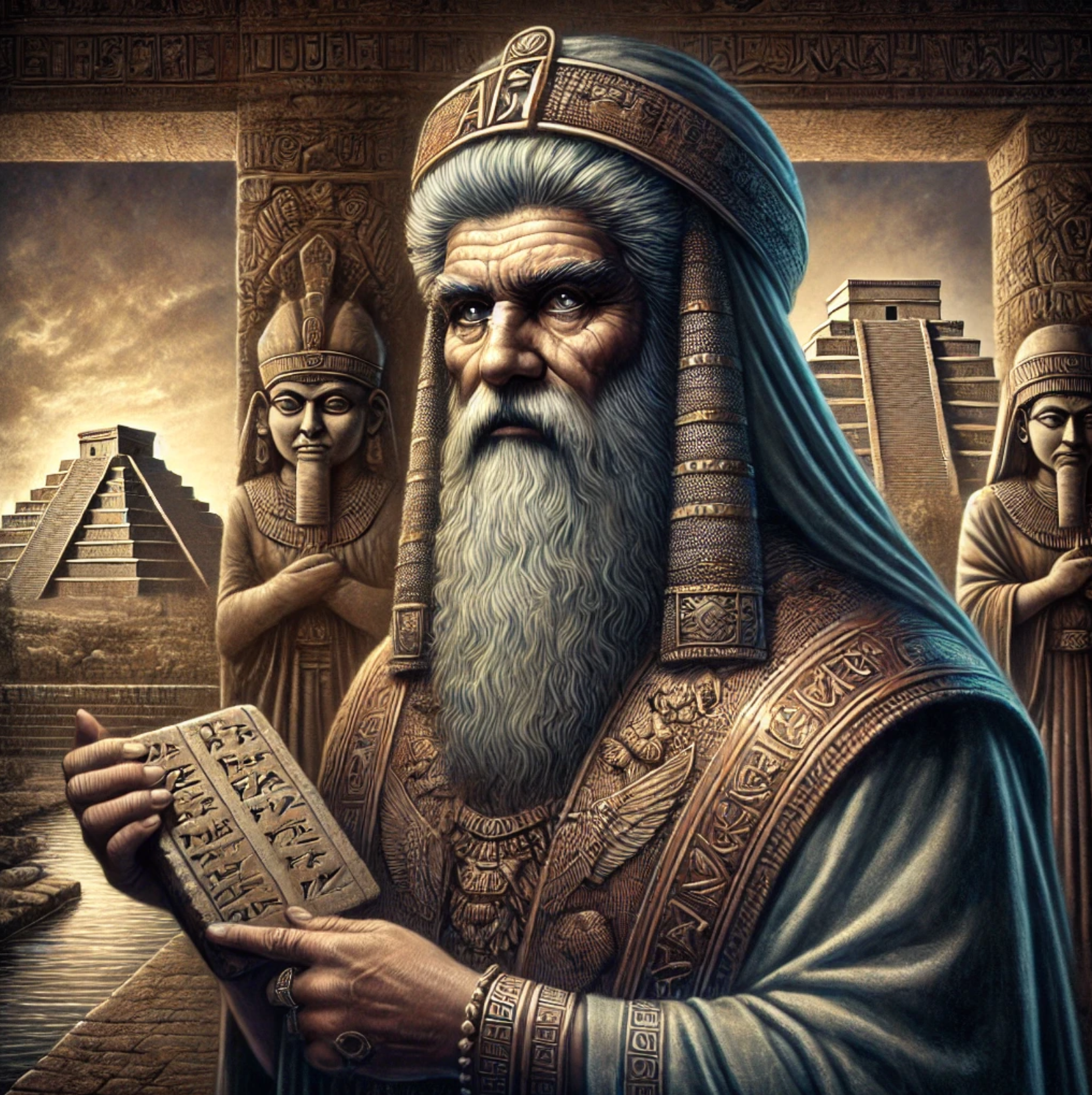Adapa

Published on: February 8, 2025
Title: Adapa and Adam: A Comparative Analysis from a Christian Perspective
Abstract:
The Mesopotamian myth of Adapa and the biblical account of Adam present compelling parallels and contrasts in the domains of human-divine interaction, wisdom, and mortality. This article examines these similarities and differences, evaluating their theological and philosophical implications from a Christian perspective. By analyzing primary texts and secondary literature, the study explores how these figures embody different aspects of the human condition and theological anthropology.
Introduction
The ancient Near East provides a wealth of mythological and theological traditions that have influenced religious thought across cultures. Among these, the story of Adapa from Mesopotamian mythology and the biblical narrative of Adam stand out as significant representations of humanity’s interaction with the divine. While both figures experience a test regarding wisdom and immortality, their fates diverge. This study aims to compare these two narratives, focusing on their theological, ethical, and eschatological dimensions from a Christian standpoint.
Adapa in Mesopotamian Mythology
Adapa, a sage created by the god Ea (Enki), was endowed with immense wisdom but not immortality. When summoned before the sky god Anu, he was offered the "food and water of life," which would have granted him eternal life. However, under Ea’s guidance, Adapa refused, mistakenly believing that consuming these gifts would result in his death. As a consequence, he remained mortal, representing the human struggle with divine wisdom and the limitations placed upon humanity by the gods.
Adam in the Biblical Tradition
In the Book of Genesis, Adam is created by God as the first human being and placed in the Garden of Eden. He is commanded not to eat from the Tree of the Knowledge of Good and Evil. Unlike Adapa, Adam disobeys, consuming the fruit after being tempted by the serpent. As a result, he and Eve are expelled from Eden, losing access to the Tree of Life and thus forfeiting immortality. The biblical narrative presents this event as the origin of sin and death in human existence, shaping Christian doctrines of the Fall and redemption.
Comparison of Adapa and Adam
The following table illustrates key similarities and differences between Adapa and Adam:
| Aspect | Adapa | Adam |
|---|---|---|
| Creation | Created by the god Ea (Enki) as a wise man and priest in Eridu. | Formed by God from the dust of the ground in the Garden of Eden. |
| Divine Command | Instructed by Ea not to eat the "bread of death" or drink the "water of death" in heaven. | Commanded by God not to eat from the Tree of the Knowledge of Good and Evil. |
| Temptation/Test | Offered the "food and water of life" by Anu but refuses, adhering to Ea’s misleading advice. | Eats the forbidden fruit after being tempted by the serpent, disobeying God's command. |
| Consequence | Misses the opportunity for immortality due to obedience to Ea's misleading guidance. | Loses access to eternal life and is expelled from Eden due to disobedience. |
| Interaction with Deity | Summoned to heaven by Anu to account for his actions; remains obedient to Ea’s guidance. | Confronted by God in Eden regarding his disobedience; attempts to hide and shift blame. |
| Outcome | Returns to Earth as a mortal, with humanity continuing to experience disease and mortality. | Faces a life of toil and eventual death; humanity inherits a fallen state. |
Theological and Philosophical Implications
From a Christian perspective, the story of Adam serves as a foundational narrative for the doctrine of original sin, which necessitates redemption through Christ. The Apostle Paul contrasts Adam and Christ, portraying Jesus as the "second Adam" who restores humanity’s relationship with God (Romans 5:12-21; 1 Corinthians 15:45-49). In contrast, Adapa’s story does not emphasize moral failing but rather the consequences of obedience to divine authority, highlighting a different view of human limitations and divine interaction.
Conclusion
While the myths of Adapa and Adam share thematic similarities, their theological implications diverge significantly. Adapa’s tale illustrates humanity’s struggle with divine wisdom and mortality without introducing the concept of sin. The biblical Adam narrative, however, establishes the foundation for Christian teachings on sin, redemption, and eschatology. A Christian interpretation of these accounts underscores the necessity of Christ’s salvific role in addressing the fallen state introduced by Adam’s disobedience.
References
- Andreasen, Niels-Erik. "Adam and Adapa: Two Anthropological Characters." Andrews University Seminary Studies, Autumn 1981, Vol. 19, No. 3, pp. 179-194.
- Shea, William H. "Adam in Ancient Mesopotamian Traditions." Andrews University Seminary Studies, 1977, Vol. 15, pp. 27-41.
- Walton, John H. Ancient Near Eastern Thought and the Old Testament: Introducing the Conceptual World of the Hebrew Bible. Baker Academic, 2006.
- Sarna, Nahum M. Understanding Genesis. Schocken Books, 1966.